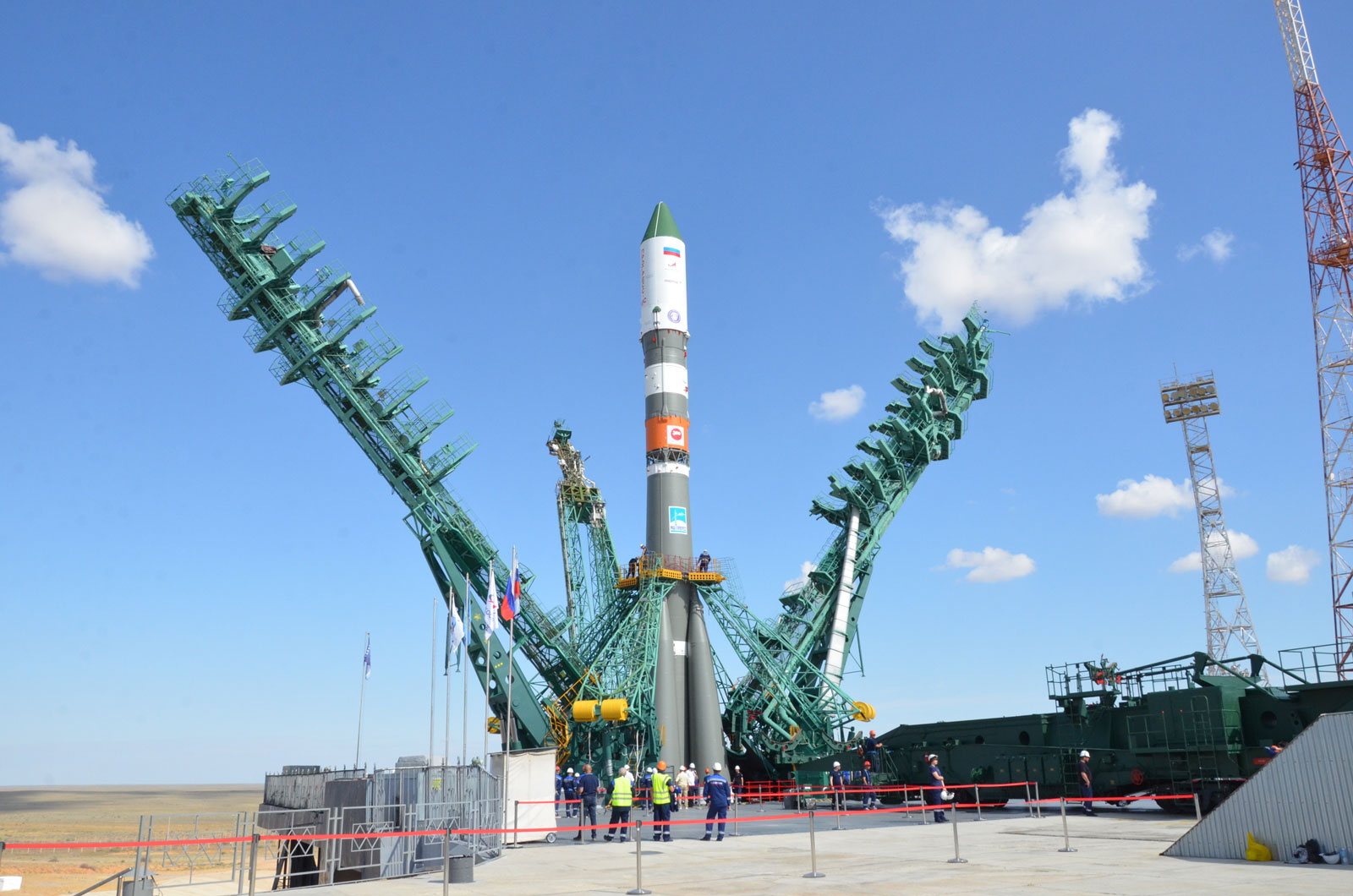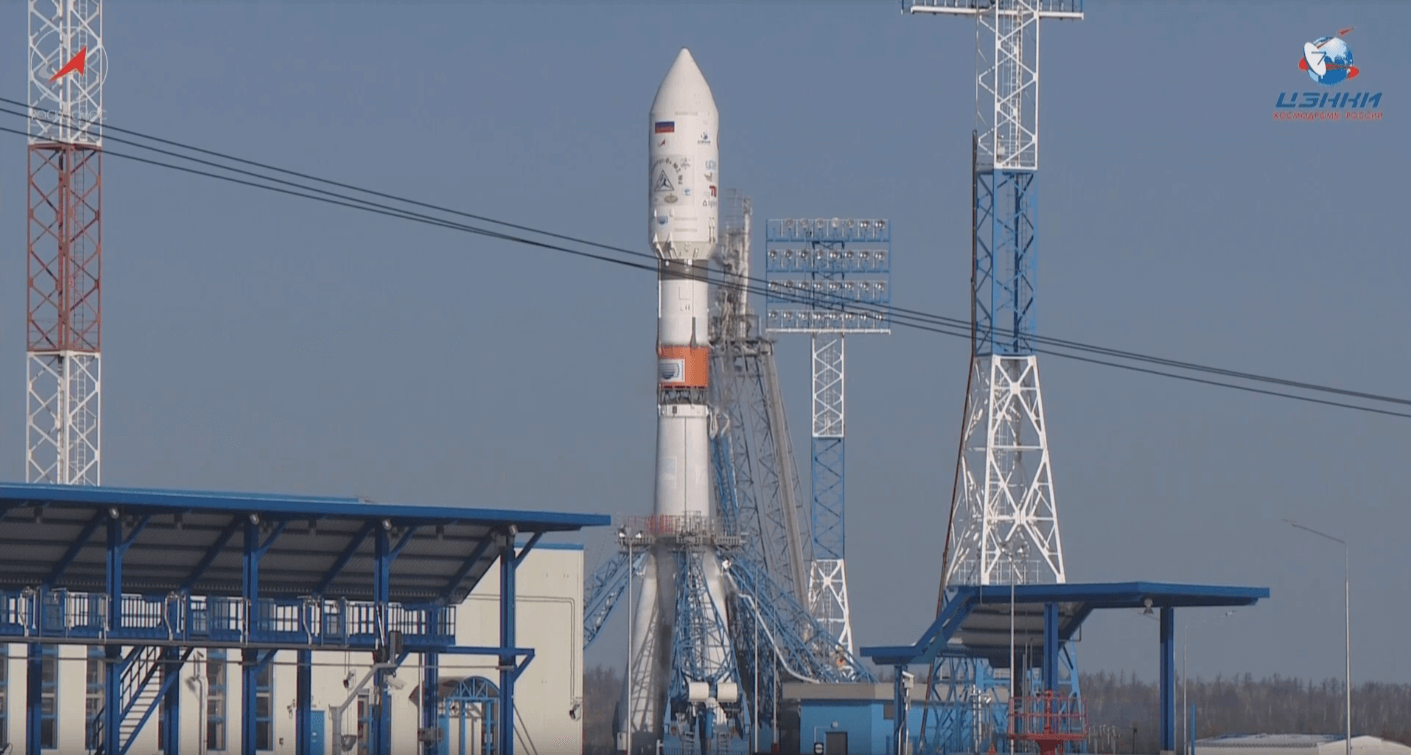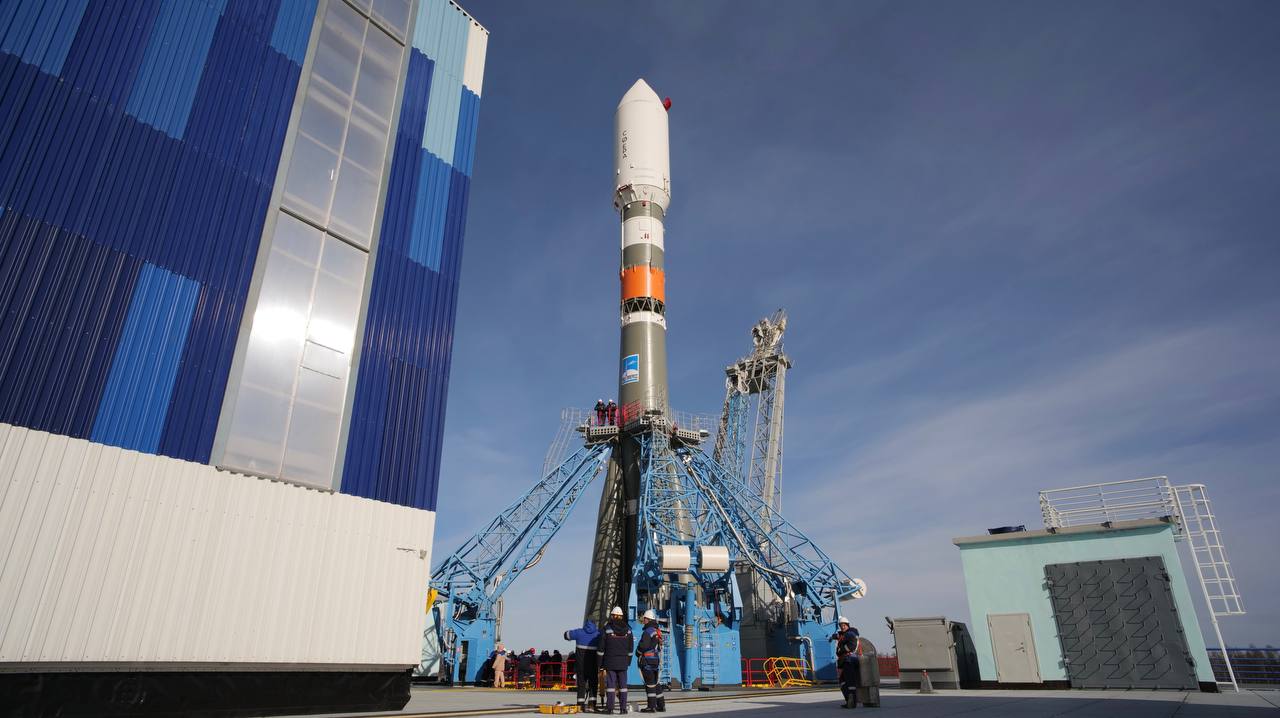Upcoming Spaceflight Launches
Filter by Agency, Locations or Vehicles
Show All LaunchesSoyuz 2.1a | Progress MS-27 (88P)
Progress Rocket Space Center | RussiaBaikonur Cosmodrome, Republic of Kazakhstan
May 30, 2024, 9:43 a.m.
Soyuz 2.1a/Fregat-M | Kondor-FKA No.2
Progress Rocket Space Center | RussiaVostochny Cosmodrome, Siberia, Russian Federation
TBD June, 2024
Status: To Be Determined
Mission:
The Kondor-FKA is a small civilian radar Earth observation satellite designed by NPO Mashinostroyeniya as a civilian counterpart to the Kondor-E satellite. The Kondor satellite features a S-band synthetic aperture radar (SAR), which can conduct both continous swath surweys or detailed spot surveys. The swath width is 10 km. Ground resolution is 1 to 2 m in spotlight mode, 1 to 3 m in stripmap mode and 5 to 30 m in ScanSAR mode.
Sun-Synchronous OrbitSoyuz 2.1a | Obzor-R No.1
Progress Rocket Space Center | RussiaVostochny Cosmodrome, Siberia, Russian Federation
TBD June, 2024
Status: To Be Determined
Mission:
The Russian Obzor-R satellite is a planned X-band radar earth observation satellite designed by TsSKB-Progress. In 2012, the development of the Arkon-2M radar satellite was stopped and instead the development of the Obzor-R was initiated. The satellite features the BRLK X-band Synthetic Aperture Radar as the imaging instrument with a ground resolution of 500 m.
Sun-Synchronous OrbitSoyuz 2.1b/Fregat | Glonass-K1 No. 18
Progress Rocket Space Center | RussiaPlesetsk Cosmodrome, Russian Federation
TBD June, 2024
Status: To Be Determined
Mission:
Glonass-K are the third generation of satellite design for GLONASS satellite navigation system. GLONASS is a Russian space-based navigation system comparable to the similar GPS and Galileo systems. This generation improves on accuracy, power consumption and design life. Each satellite is unpressurized and weighs 935 kg, and has an operational lifetime of 10 years.
Medium Earth OrbitSoyuz 2.1a | Progress MS-28 (89P)
Progress Rocket Space Center | RussiaBaikonur Cosmodrome, Republic of Kazakhstan
TBD August, 2024
Soyuz 2.1a | Bion-M No. 2
Progress Rocket Space Center | RussiaBaikonur Cosmodrome, Republic of Kazakhstan
TBD September, 2024
Status: To Be Determined
Mission:
Bion-M is the next generation of Russian biological research satellites. While retaining the Vostok/Zenit-derived reentry module of the earlier Bion, the propulsion module has been replace by a Yantar type module, which provides maneuvering capabilities and longer mission support. The mission duration has been increased to up to 6 months by using solar cells for energy generation. The weight of scientific equipment has been increased by 100 kilograms.
Low Earth OrbitSoyuz 2.1a | Soyuz MS-26
Progress Rocket Space Center | RussiaBaikonur Cosmodrome, Republic of Kazakhstan
TBD September, 2024
Soyuz 2.1b/Fregat | Glonass-K1 No. 19
Progress Rocket Space Center | RussiaPlesetsk Cosmodrome, Russian Federation
TBD September, 2024
Status: To Be Determined
Mission:
Glonass-K are the third generation of satellite design for GLONASS satellite navigation system. GLONASS is a Russian space-based navigation system comparable to the similar GPS and Galileo systems. This generation improves on accuracy, power consumption and design life. Each satellite is unpressurized and weighs 935 kg, and has an operational lifetime of 10 years.
Medium Earth OrbitSoyuz 2.1b/Fregat-M | Ionosfera-M 1 & 2
Progress Rocket Space Center | RussiaVostochny Cosmodrome, Siberia, Russian Federation
TBD November, 2024
Status: To Be Determined
Mission:
Ionosfera is a constellation of four ionospheric and magnetospheric research satellites developed by for Roscosmos for the project Ionozond. The satellites will operate on circular sun-synchronous orbits (SSO), at altitude of about 800 km and located in two orbital planes of two satellites each. The following science instruments are carried on the satellites: * SPER/1 Plasma and energy radiation spectrometer * SG/1 Gamma-ray spectrometer * GALS/1 Galactic cosmic ray spectrometer / 1 * LAERTES On-board Ionosonde * NBK/2 Low-frequency wave complex * ESEP Ionospheric plasma energy spectrometer * Ozonometer-TM Ozonometer * MayaK On-board radio transmitters * PES GPS-GLONASS device
Sun-Synchronous OrbitSoyuz 2.1a | Progress MS-29 (90P)
Progress Rocket Space Center | RussiaBaikonur Cosmodrome, Republic of Kazakhstan
TBD November, 2024
Soyuz 2.1b
Kosmos (Unknown Payload)
43/4 (43R) - Plesetsk Cosmodrome, Russian FederationProbable Russian military payload of unknown purposes.
Falcon 9
Starlink Group 8-7
Space Launch Complex 4E - Vandenberg SFB, CA, USAA batch of 20 satellites for the Starlink mega-constellation - SpaceX's project for space-based Internet communication system.
Falcon 9
Starlink Group 6-58
Space Launch Complex 40 - Cape Canaveral, FL, USAA batch of 23 satellites for the Starlink mega-constellation - SpaceX's project for space-based Internet communication system.
Long March 4C
Shiyan 23
Launch Area 4 (SLS-2 / 603) - Jiuquan Satellite Launch Center, People's Republic of ChinaSatellite officially named for "space environment detection" purposes, exact details unknown.
Falcon 9
Starlink Group 8-2
Space Launch Complex 4E - Vandenberg SFB, CA, USAA batch of 20 satellites for the Starlink mega-constellation - SpaceX's project for space-based Internet communication system.
Long March 3
ZHTW 1-01
Launch Complex 2 (LC-2) - Xichang Satellite Launch Center, People's Republic of ChinaZhihui Tianwang 1-01 are 2 experimental Medium Earth Orbit communication satellites in a collaboration between Tsinghua University, SAST and the Shan…
Falcon 9
Starlink Group 6-56
Launch Complex 39A - Kennedy Space Center, FL, USAA batch of 23 satellites for the Starlink mega-constellation - SpaceX's project for space-based Internet communication system.
Long March 6C
Maiden Flight
Launch Complex 9A - Taiyuan Satellite Launch Center, People's Republic of ChinaCarried 4 Earth observation satellites to orbit: * Haiwangxing-01, 239 kg X-band SAR satellite built by SAST for Zhihui Space Tech * Zhixing-1C, X-…
Falcon 9
Starlink Group 6-57
Space Launch Complex 40 - Cape Canaveral, FL, USAA batch of 23 satellites for the Starlink mega-constellation - SpaceX's project for space-based Internet communication system.
Long March 5
Chang'e 6
101 - Wenchang Space Launch Site, People's Republic of ChinaChang'e 6/CE-6 is scheduled to launch in 2024 to return samples from the Far Side of the Moon (near southern edge of the Apollo Basin) for the first …




